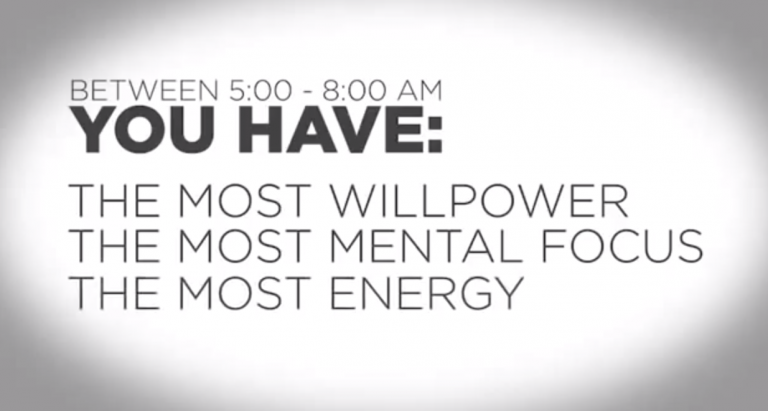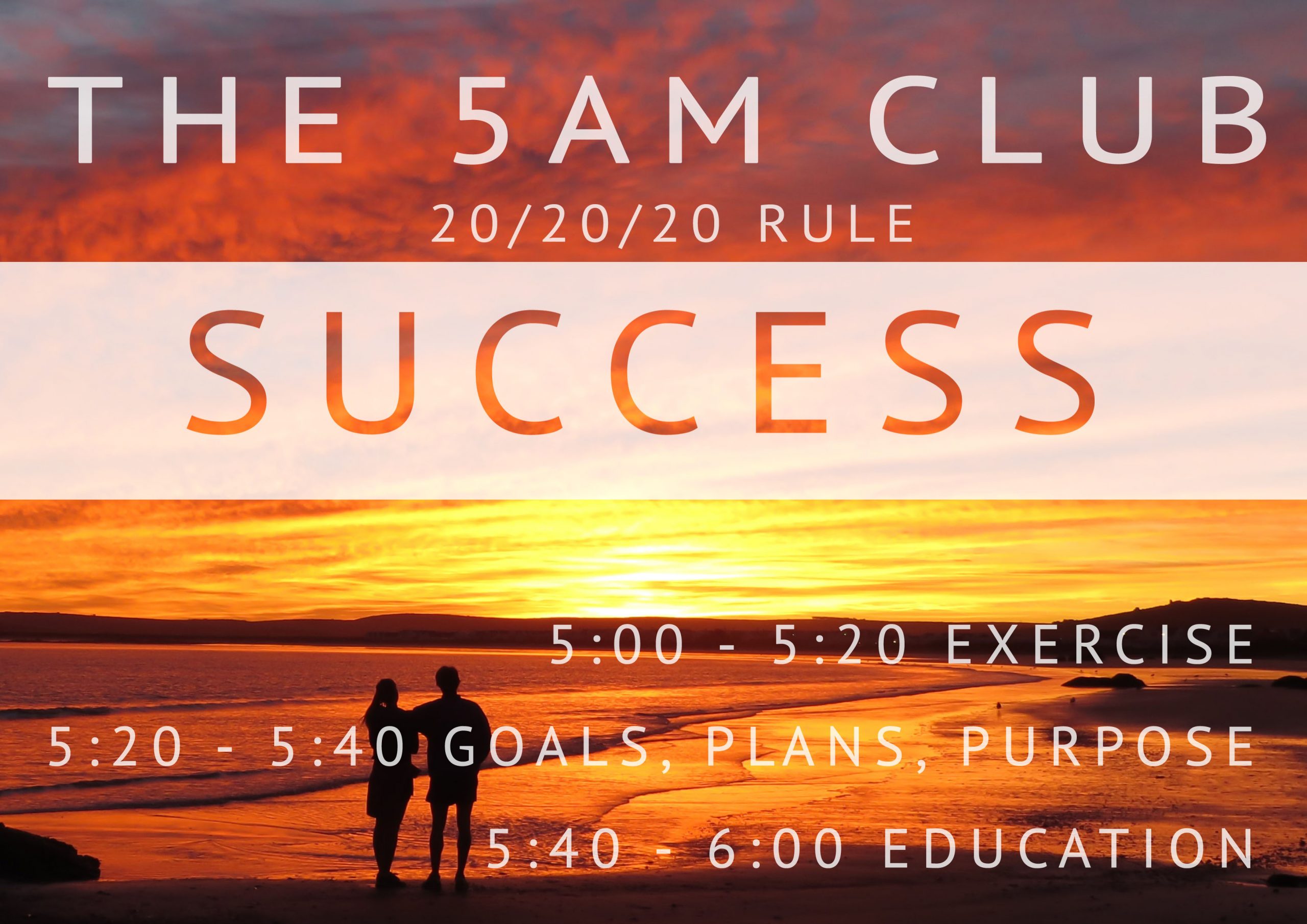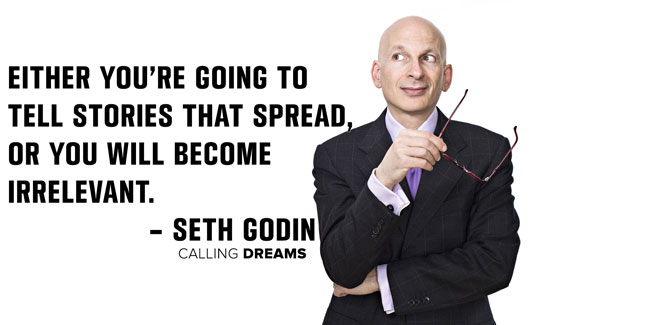All You Need To Know About The 5 AM Club
Some of us prefer to work in the morning, while others during the evening and night. We are used to say that the difference is made my our biorhythm. But what happens when you want to be more productive and have more time on your hands? What is the best formula to help you get forward? According to Psychology Today, several studies have shown that we function best physiologically and psychologically when our internal cycles are well-synchronized with those of the external world. If we mess up our sleep and wake patterns, for example, our mood suffers.
Alertness wanes and concentration falters. Memory gets shoddy. And performance on important tasks takes a dive. You don’t feel coherent, may not even be able to speak coherently. Physical well being suffers too. The immune system is compromised, leading to higher likelihood of a cold or flu. Hormones are in disarray, stomach problems arise. These are common complaints among those doing shift work, experiencing jet lag and suffering insomnia.
In addition to the body rhythms set to the day, there are other body rhythms occurring in cycles of shorter duration, often multiple times during the day. These are known as ultradian rhythms. With these, too, biological and psychological alertness and performance are very strongly correlated to the synchronization of your actions with the body’s natural patterns.
In the last years, there is a new trend and strong movement called “The 5am Club” that is trying to convince people that waking up at 5 am offers you a set of advantages over the rest of the people and, more than that, helps you become a better you.
The 5am Club by Michael Lombardi is a book about how to take advantage of your most productive time of the day, and how to prepare effectively both mentally and physically, to be ready for whatever the day throws your way. According to its writer, starting your day early gives you a leg up on others and gives you time to prepare yourself for your day before you are immersed in it. That quiet time early in the morning is a time to prepare you, body and mind, for a good start. That good start, in turn, gives you the chance to focus on positivity and ensure your day goes the best way possible.
It’s not as easy as setting your alarm for 5am, though. You need to manage your sleep effectively so that getting up so early does not take its toll on you. You need to manage your health, including food and drink intake to keep your body properly fuelled. And in addition, you need to minimize distraction in order to ensure a calm start to your day.
While there are many more personalities talking and writing about the subject,from Jeff Sanders and his 5am Miracle Podcast, and to Sharran Srivatsaa, probably the best known person for promoting the idea of The 5 am is Robin Sharma.

What has The 5 AM Club taught Robin Sharma about creativity and productivity:
1. When attempting to do a towering work that turns the industry on its head, you’ll feel like it’s not good enough, a lot of the time.
2. When you feel like quitting is the time you must commit to continuing.
3. Critics should move out of the way of people trying to get things done.
4. Procrastination is just your fear trying to divert you.
5. Fasting is an amazing practice to elevate your mental clarity, fireproof your energy and save a ton of time [and grocery expenses; joking…a little].
6. There is immense value, as you produce a project that you want to endure for decades, in getting lost from your usual life. You absolutely need to “go dark” so you get into the Flow State of mind that will deliver peak ideas to you. Major parts of The 5 AM Club were written in Rome, Russia, Brazil, Switzerland and Mauritius.
7. Get your creative tools right.
8. On the writing of this book, music was almost always playing as he worked on his craft. Music works to activate your best.
9. Reward yourself.
There is also an app, available in the AppStore.
In Romania, coaching on the subject is done by Dan Luca.
Why you should do it? Here are the main pros of the method:
- Bigger productivity
- More time for exercising, yourself and your loved ones
- Time for eating right and being present, enjoying every minute
- Getting the sleep at the right time when you need it
- Time to be the best at what you do

Online you can find several examples of people that state that starting their day at 5 am has changed their lives for the better. You can start from here, here and here.
Still, there are also plenty of people who believe that this isn’t sustainable on a long run or if you are just not simply cut out for it.
The Power of Habit in Business
In The Power of Habit, award-winning New York Times business reporter Charles Duhigg takes us to the thrilling edge of scientific discoveries that explain why habits exist and how they can be changed. With penetrating intelligence and an ability to distill vast amounts of information into engrossing narratives, Duhigg brings to life a whole new understanding of human nature and its potential for transformation.
Along the way we learn why some people and companies struggle to change, despite years of trying, while others seem to remake themselves overnight. We visit laboratories where neuroscientists explore how habits work and where, exactly, they reside in our brains. We discover how the right habits were crucial to the success of Olympic swimmer Michael Phelps, Starbucks CEO Howard Schultz, and civil-rights hero Martin Luther King, Jr. We go inside Procter & Gamble, Target superstores, Rick Warren’s Saddleback Church, NFL locker rooms, and the nation’s largest hospitals and see how implementing so-called keystone habits can earn billions and mean the difference between failure and success, life and death.
At its core, The Power of Habit contains an exhilarating argument: The key to exercising regularly, losing weight, raising exceptional children, becoming more productive, building revolutionary companies and social movements, and achieving success is understanding how habits work.
Habits aren’t destiny. As Charles Duhigg shows, by harnessing this new science, we can transform our businesses, our communities, and our lives.
More on the book and the ideas presented you can also read on this New York Times’ inspirational article.
15 Things you might not know about Seth Godin
Seth Godin is one of the world’s most renowned marketing experts and a bestselling author. He was a keynote speaker at BRAND MINDS 2018.
BRAND MINDS is The Biggest Business Event in Central & Eastern Europe.
Seth Godin is the author of 18 books that have been bestsellers around the world and have been translated into more than 35 languages. He writes about the post-industrial revolution, the way ideas spread, marketing, quitting, leadership and most of all, changing everything. You might be familiar with his books Linchpin, Tribes, The Dip and Purple Cow.
More things about him that you might not know:
1. He received degrees in computer science and philosophy from Tufts University, followed by an MBA in marketing from the Stanford Graduate School of Business.
2. From 1983 to 1986, he worked as a brand manager at Spinnaker Software. After leaving Spinnaker in 1986, he used $20,000 in savings to found Seth Godin Productions, primarily a book packaging business, out of a studio apartment in New York City. He then met Mark Hurst and founded Yoyodyne. After a few years, Godin sold the book packaging business to his employees and focused his efforts on Yoyodyne, where he promoted the concept of permission marketing.
3. In addition to his writing and speaking, Seth founded both Yoyodyne and Squidoo. His blog (which you can find by typing “seth” into Google) is one of the most popular in the world.
4. He was recently inducted into the Direct Marketing Hall of Fame, one of three chosen for this honour in 2013.
5. Godin once again set the book publishing industry on its ear by launching a series of four books via Kickstarter. The campaign reached its goal after three hours and ended up becoming the most successful book project ever done this way.
6. In April 2016, Godin’s book, All Marketers Are Liars, was selected by Forbes contributor Carine Alexis as one of six essential books every marketer should have on their shelf.
7. His newest book, What To Do When It’s Your Turn, is already a bestseller.
8. “Seth Godin may be the ultimate entrepreneur for the Information Age,” Mary Kuntz wrote in Business Week nearly a decade ago.
9. “We need to care enough to connect, care enough to put ourselves at emotional risk to touch other people and play one note that’s worth hearing,” Godin said for TEDx.
10. According to entrepreneur.com, Godin has one of the most-loved marketing blogs on the internet.
11. In 2005 he launched Squidoo, a website that helps hobbyists publicize and monetize their personal passions and now attracts more than 53 million unique visitors a month.
12. Still, according to entrepreneur.com, he is not a Facebook fan or Twitter and has no publicist. Books from his publishing venture The Domino Project, launched in conjunction with Amazon, did not have major publicity pushes or wide releases at bookstores.
13. As a child, Seth Godin played the clarinet.
14. Godin is aiming to connect with should-be, almost-are or want-to-be artists.

15. He created a ten-book series for children titled ‘Worlds of Power’, which was written by various writers and in each series a plot of a video game is explained.
Are you a #worldchanger?
Come to BRAND MINDS 2023!

15 Things you might not know about Daniel Goleman
Daniel Goleman is one of the world’s renowned psychologists. He was a speaker at BRAND MINDS 2018.
BRAND MINDS is The Central and European Business Summit taking place in Bucharest, Romania.
Daniel Goleman is an internationally known psychologist who lectures frequently to professional groups, business audiences, and on college campuses. As a science journalist Goleman reported on the brain and behavioural sciences for The New York Times for many years.
Here you can find some pieces of information you might not know about Daniel Goleman:
1.His 1995 book, Emotional Intelligence was on The New York Times bestseller list for a year-and-a-half, with more than 5,000,000 copies in print worldwide in 40 languages, and has been a best seller in many countries. Apart from his books on emotional intelligence, Goleman has written books on topics including self-deception, creativity, transparency, meditation, social and emotional learning, eco-literacy and the ecological crisis.
2. The Harvard Business Review called emotional intelligence— which discounts IQ as the sole measure of one’s abilities — “a revolutionary, paradigm-shattering idea” and chose his article “What Makes a Leader” as one of ten “must-read” articles from its pages.
3. “Emotional Intelligence” was named one of the 25 “Most Influential Business Management Books” by TIME Magazine. The Financial Times, Wall Street Journal and Accenture Insititute for Strategic Change have listed Goleman among the most influential business thinkers.
4. Goleman is a co-founder of the Collaborative for Academic, Social, and Emotional Learning (www.casel.org), originally at the Yale Child Studies Center and now at the University of Illinois at Chicago. CASEL’s mission centres on bringing evidence-based programs in emotional literacy to schools worldwide.
5. He currently co-directs the Consortium for Research on Emotional Intelligence in Organizations (www.eiconsortium.org) at Rutgers University. The consortium fosters research partnerships between academic scholars and practitioners on the role emotional intelligence plays in excellence.
6. Goleman is a board member of the Mind & Life Institute, which fosters dialogues and research collaborations among contemplative practitioners and scientists. Goleman has organized a series of intensive conversations between the Dalai Lama and scientists, which resulted in the books Healthy Emotions, and Destructive Emotions. He is currently editing a book from the most recent dialogue on ecology, interdependence, and ethics.
7. His most recent book, Leadership: The Power of Emotional Intelligence, offers an up-to-date summary of his thinking on leadership by collecting key excerpts from his books together for the first time in one volume with his articles from the Harvard Business Review. These include “What Makes a Leader? and “Leadership that Gets Results.”
8. Goleman’s other recent book, The Brain and Emotional Intelligence: New Insights gathers together recent findings from brain research and other sources on topics ranging from creativity and optimal performance, the brain-to-brain connection in leadership, and to how to enhance emotional intelligence itself.
9. His work as a science journalist has been recognized with many awards, including the Washburn Award for science journalism, a Lifetime Career Award from the American Psychological Association, and he was made a Fellow of the American Association for the Advancement of Science in recognition of his communicating science to the general public.
10. Recruited by the New York Times to cover psychology and related fields, in 1984 he began a twelve-year sojourn. He learned much about science journalism from his editors and colleagues, a talented crew on the science desk, and the Times offered remarkable access and visibility. But he found that his urge to write about ideas with impact sent him in directions that did not always fit what the Times saw as news.
11. His wife Tara and him tried to spend a good deal of their free time in meditation retreats or travelling together to places they enjoy that nourish this side of their lives. “Life’s simple pleasures—a walk on a beach, playing with grandchildren, a good conversation with a friend—have more appeal to me than professional honours or ambitions,” said Goleman.
12. According to him, vitality arises from sheer human contact, especially from loving connections. This makes the people we care about most an elixir of sorts, an ever-renewing source of energy. “The neural exchange between a grandparent and a toddler, between lovers or a satisfied couple, or among good friends, has palpable virtues…the practical lesson for us all comes down to, Nourish your social connections,” he added.
13. He is twice a Pulitzer Prize nominee. Moreover, The Wall Street Journal ranked him one of the 10 most influential business thinkers and he was named on the 2011 and 2013 Thinkers50‘s editions and a top business guru by Accenture Institute for Strategic Change. His article “ What Makes a Leader?” remains the most requested reprint in the history of Harvard Business Review.
14. Goleman’s newest book, Altered Traits: Science Reveals How Meditation Changes Your Mind, Brain and Body, is co-written with Richard Davidson and will be released September 5, 2017. Through cutting edge research, Goleman and Davidson explore how meditation and mindfulness can achieve real, positive, and lasting mental and behavioural change.
15. In addition to his numerous professional and academic achievements, Goleman stresses how important his private and personal life is to him on his personal website. “While a bio like this focuses on one’s public life, I find that over the years my private life has grown increasingly important to me, particularly as the years allow me to spend less time running around and more time just being. I find more and more that what satisfies me has little to do with how well one or another book does— although the good works I participate in continue to matter much,” he confesses.
Are you a #worldchanger?
Come to BRAND MINDS 2020!
Here are our first confirmed speakers; we will be announcing more speakers in the coming months so stay tuned!
Malcolm Gladwell, Martin Lindstrom and Michio Kaku











